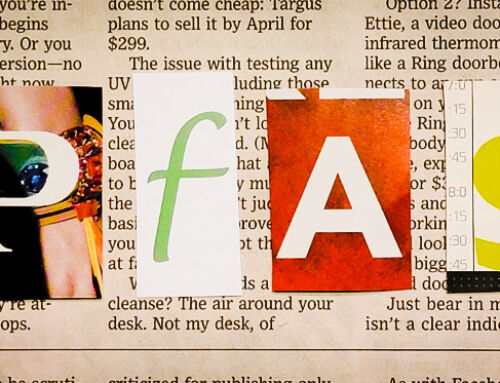View by Topic
Recent Articles
-
Appeals Court Finds Climate Change is Not JusticiableSaturday, May 11th, 2024
-
Colorado Building Energy Performance Standards (BEPS) Laws ChallengedSaturday, May 4th, 2024
-
New Environmental Laws from the 2024 Maryland Legislative SessionSaturday, April 27th, 2024
-
EPA Designates PFOA and PFOS as Hazardous Substances under Superfund LawSaturday, April 20th, 2024
-
Federal Government Finalizes New Efficiency Standards for LightbulbsSaturday, April 13th, 2024
View by Month/Year
“Green Building Law Update” Headlines
Recent Articles & News from
Stuart Kaplow’s blog
at GreenBuildingLawUpdate.com
- Constitutional Rights vs. Climate Change: Inside the Juliana Case Dismissal May 12, 2024
- Does Federal EPCA Trump Colorado Building Energy Performance Standards (BEPS)? May 5, 2024
- New Environmental Laws in Maryland: 2024 Brings Opportunities for Businesses April 28, 2024
- EPA Takes Action: PFOA and PFOS Now Hazardous Substances Under Superfund Law April 21, 2024
Subscribe to the Green Building Law Update!
Stuart Kaplow brings his expertise and extensive experience to the table with his unique digital publication, "Green Building Law Update". Subscribers receive regular updates to keep them informed about important issues surrounding Environmental Law, Green Building & Real Estate Law, as well as the emerging demand for Environmental Social Governance (ESG).
Get fresh content through the lense of Stuart Kaplow's cutting-edge expertise, innovative commentary and insider perspective. Don't miss another issue! Subscribe below.

Net Zero Risks as a Source of Opportunity
Calculating net zero is ill defined, unregulated and complex. Businesses making a net zero pledge like, “we will be net zero by 2030” risk a charge that they are greenwashing and misleading consumers.
It is one thing when government leaders make an ESG claim: In 2009 the King of Bhutan proclaimed his Himalayan country was ‘carbon negative’ because all of its power was hydroelectric or solar buttressed with large forested areas. In 2017 the Speaker of the Swedish Riksdag announced it was the first nation to enshrine a ‘net zero by 2045’ pledge into law, but the law actually only requires 5 year reports on progress. And some months ago, the Crown Prince of Saudi Arabia pledged to reach ‘net zero carbon emissions within its borders’ by 2060, but that calculation will not include oil exports (.. really?).
But it is another thing for a business to risk making an ESG pledge about net zero, which may mislead customers. We fully embrace that risk with a positive impact is an opportunity, however, caution clients not to make unqualified general environmental claims because ‘‘it is highly unlikely that marketers can substantiate all reasonable interpretations of these claims,’’ the Federal Trade Commission standard for environmental claims. As we recently wrote in a blog post, FTC Says Updated Green Guides are Coming, we may see the FTC expressly regulate claims related to carbon which will be important to marketing the subject of net zero.
Federal courts have held it is deceptive to misrepresent, directly or by implication, that a product, package, or service offers a general environmental benefit and ESG claims including net zero can fall within that purview.
And that concern is real without delving into the science of whether net zero is even possible. There will have to be some agreement that does not exist today of what it means to be net zero (e.g., all emissions or only greenhouse gases or just carbon dioxide or?). And while very low carbon emissions are possible, at some dollar cost, the absence of all quantity is not so easy if ever achieved (.. and such may be more philosophy than physics).
If zero is the absence of any measurable quantity does a business not set itself up for failure when those modern laboratories are capable of detecting parts per Trillion?
We view our role in part as articulating, mitigating, and seeking opportunities for a business in what is now termed “carbon asset risk” which often includes that business’ pledge of achieving net zero.
There has been little litigation to date, but as far back as 2016, we wrote a blog post about “net zero energy” in California, False Advertising Claims over Net Zero and LEED Certified Homes. And we wrote in a blog post in 2019 about another lawsuit some 3,000 miles away on the opposite coast in Maryland, Net Zero Lawsuit filed Against Home Builder.
A pending greenwashing lawsuit in the Amsterdam District Court alleges that Dutch airline KLM is making misleading advertising claims when among other claims it advertises the airline “is on track to reduce its emissions to net zero by 2050.” As we describe in our post, New Greenwashing Case is Troubling to Future of ESG, the suit challenges KLM’s future net zero goal saying it “undermines the urgent action needed to minimize climate catastrophe.”
The more likely and larger risk to most businesses is not a lawsuit but its reputation. Where in the past there might have been a single print story about a charge of greenwashing seen by Wall Street Journal subscribers alone, today, viral social media can attack a company with millions of views within hours if not minutes.
For years, in our sustainability law practice, we have assisted businesses in managing carbon asset risk. Today, we are particularly cognizant of the fast evolving and changing dynamic between law and science driving companies’ decision making processes. And it is not lost on us that calculating net zero emissions is ill defined, unregulated, and complex.
Done correctly, our work in managing risk for each client is also, at an ideological level the defense of capitalism by limiting the need for future broad government regulation.
But be aware the SEC’s March 21, 2022 proposed Rules to Enhance and Standardize Climate Related Disclosures for Investors, is consequential in the consideration of net zero, because the regulation will require a company to disclose GHG emissions from upstream and downstream activities in its value chain (i.e., Scope 3 emission), if the company has (publicly) set a GHG emissions target or goal (e.g., including if a company has committed to be carbon neutral by 2030, or the like). The rule proposes a safe harbor for liability from the SEC (.. but not from state regulators or private actors) from Scope 3 emissions disclosure and an exemption from the Scope 3 emissions disclosure requirement for smaller reporting companies.
Additionally, a checkerboard of government regulation creates significantly more risk and opportunity for business when like in the instance of Maryland, it codifies those buildings, commercial or multifamily with a gross floor area of 35,000 square feet or more, must be net zero before January 1, 2040.
Moreover, there is pressure for businesses to join the more than 300 companies that have signed the UN Climate Pledge to “Neutralize any remaining emissions with additional, quantifiable, permanent, and socially beneficial offsets to achieve net-zero annual carbon emissions by 2040.”
One way we assist businesses in mitigating the risks associated with making net zero and other ESG claims that may mislead consumers is by relying on third party verifications of claims. One good example of a third party verified standard for net zero is the USGBC LEED Zero program and its 4 segregated components: LEED Zero Carbon recognizes net zero carbon emissions from energy consumption; LEED Zero Energy recognizes a source energy use balance of zero; LEED Zero Water recognizes a potable water use balance of zero; and, LEED Zero Waste recognizes buildings that achieve GBCI’s TRUE certification at the Platinum level. The USGBC programs may arbitrarily or conveniently designate zero, but such mitigates risk from a challenge.
Hundreds of companies have made net zero pledges this year, the majority of which expose those businesses to unnecessary risk.
Again, we appreciate the fast evolving and changing dynamic between law and science in this space where calculating net zero remains ill defined, unregulated, and complex. We help businesses manage risk in making ESG, including net zero claims while taking advantage of these new opportunities.
A live webinar “Net Zero Pledges by Businesses,” 30 talking points in 30 minutes, Wednesday, October 26 at 9 am EST presented by Stuart Kaplow and Nancy Hudes on behalf of ESG Legal Solutions, LLC. The webinar is complimentary, but you must register here.









